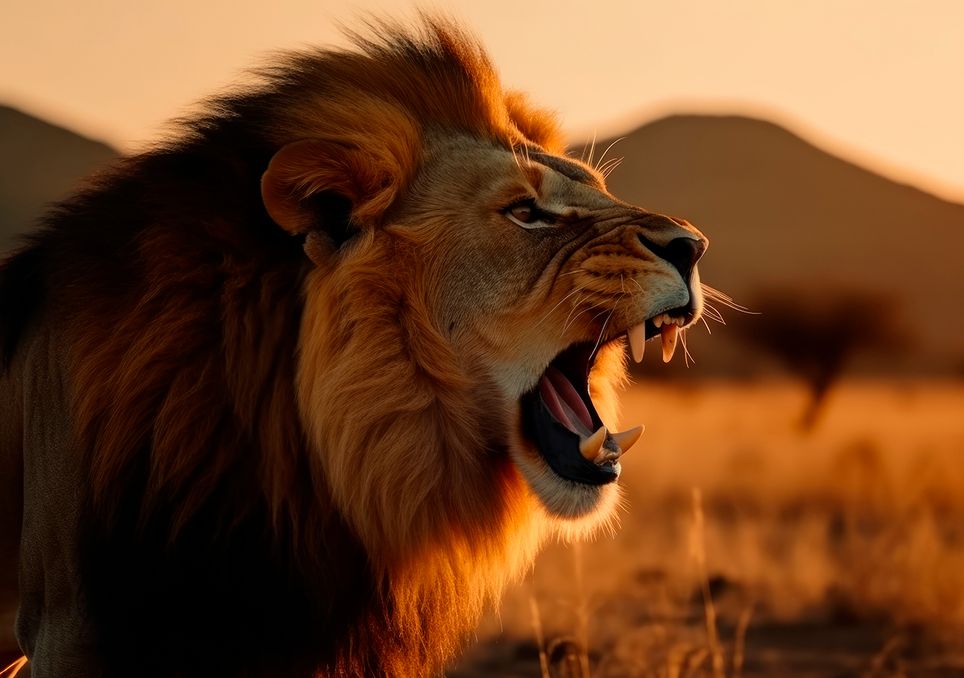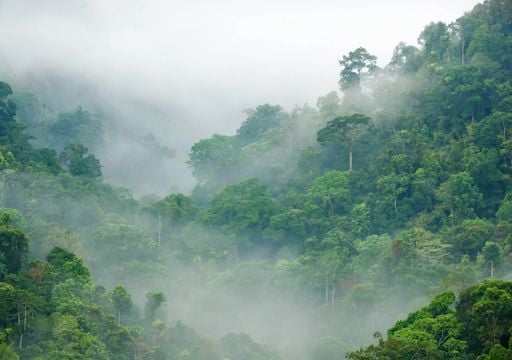What's the most terrifying sound made by an animal? It's worse than the roar of a lion
It is not the roar of a lion that most terrifies and frightens the animals in South Africa's Kruger National Park. This is the creepiest sound, according to a study.

There are almost two million hectares in the untamed heart of South Africa, where lions, leopards, elephants, buffaloes and rhinos can roam freely. The world-famous Kruger National Park receives more than a million visitors per year, eager to appreciate the quantity and diversity of animals that make this place unique.
One could assume that the lion, the undisputed king of these domains, is the most feared and respected animal in the area. A single roar would be enough to terrify and frighten any other wild creature of the South African savannah, more than any other sound. But a recent study found that there is a sound much more intimidating and powerful than a lion's roar: the human voice.
Humans: the true kings of the jungle
The lion's roar is the most powerful of all felines and can be heard 8 kilometres away. Male lions roar to show their power, to defend their territory and scare away intruders. It is not in vain that this animal is considered “the king of the jungle”, although that noble title is wrong, since it lives in the African savanna. And to make matters worse, it seems that it has lost that power of intimidation in front of most animals.
A study published in Current Biology has found that mammals in the Kruger Park show much greater fear when they hear human voices than when they hear the roars of lions, or the barking of dogs or gunshots, all sounds related to poaching.

Researchers placed camouflaged cameras near water holes to observe many of the savannah's iconic mammals: elephants, zebras and rhinos. Using high-fidelity speakers, they played a mix of sounds, from human voices to those of a roaring lion.
In 95% of cases, the animals reacted and fled more quickly to the sound of a human speaking than to the sound of a lion roaring. Giraffes, zebras, hyenas, leopards and others have demonstrated, through their self-defensive reactions to the human voice, that wildlife considers us a superpredator, far above any other.
Superpredators
A leopard carries an impala in its jaws, ready to feast in the shade. Suddenly, a human's voice, coming out of nowhere, begins to speak in a normal, monotonous tone. That was enough for the leopard to drop its prey and flee in terror.
The researchers played different sound clips in random order as the camouflaged cameras were activated by motion as an animal approached. From calm sounds, such as the songs of local birds, to more threatening ones such as barking dogs, gunshots, lions growling and roaring, and humans speaking calmly.

After analysing the behaviour of 19 species in more than 4,000 videos, the researchers found that when faced with humans talking, the animals were twice as likely to flee and left waterholes 40% faster than when they heard lions, dogs or weapons. And the contrast in the flight response to human voices versus the roars and growls of lions was pronounced in most species.
Because "humans hunt at a much higher rate than other predators, it has generated an ingrained and widespread feeling of fear," says the study's lead researcher, Liana Y. Zanette, of Western University in Canada. These results can serve as a basis for systems that can deliberately keep endangered species away from poaching areas.




